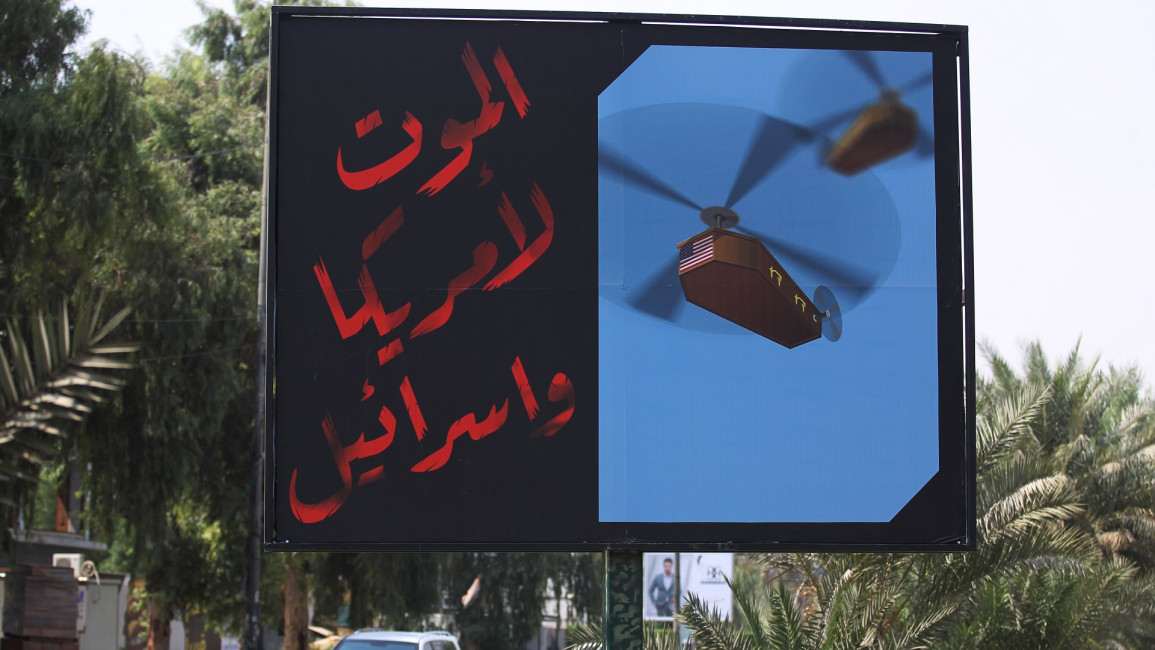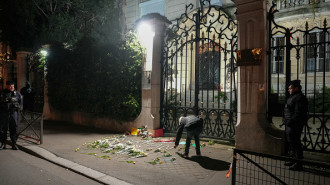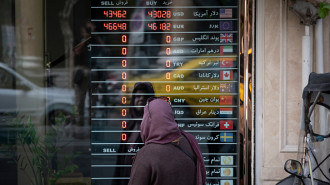Follow us on Twitter: @The_NewArab
Iran-backed 'electronic armies' threaten Iraqi activists, journalists
Armed groups, political parties and even state officials in Iraq have scores of online supporters called "electronic armies" that aggressively praise them and mock their opponents on social media channels.
These rivalries have been further stoked by rising tensions between Iran and the United States, with Iraq being caught in the middle.
The online groups threaten those they suspect of supporting Israel or the United States.
One graphic that was shared by an Arabic language newspaper accused 14 Iraqis of supporting a policy of "normalisation with Israel", and named individuals such as the journalist Joumana Mumtaz and the blogger Ali Wajih.
In response, Wajih wrote an open letter to the country's Prime Minister Adel Abdel Mahdi and the al-Hashed leadership saying that the allegations of them seeking to normalize relations with Israel were "empty and silly".
"For years, a group of us journalists and bloggers has faced incitements to murder by people and pages that may be close to the Hashed, or directly linked to it," he added.
Omar al-Shaher, another journalist named in the graphic, said there was "not a shred of proof" to back up the claims.
"These days, it's more dangerous than ever to have your name associated with the Israeli camp," he told AFP.
|
Also read: Iraq moves to limit influence of Iran-backed militias |
Historian Omar Mohammad, who documented atrocities in Mosul under the Islamic State group, said he suspected the new accusations came "as a result of the recent (purported) Israeli airstrikes and US-Iranian tensions."
Twitter Post
|
Mohammad said the graphic's sleek production meant he was taking these threats seriously.
"It is institutional and professional. Seems there is a team specialised in dehumanising us," Mohammad told AFP from outside Iraq.
Media rights groups are worried such incitement could lead to real violence.
"The sensitivity of the Palestinian question in the region means that accusing someone of working with Israel is tantamount to calling for their killing," said the Journalistic Freedoms Observatory.
Monitoring and rights group Iraqi Media House called for better protection of journalists.
"The phenomenon of electronic armies has reached dangerous levels, issuing threats including incitement to violence and hatred," it said.
"We are surprised by the authorities' continued silence so far, including the judiciary, in a clear abandonment of its responsibilities when it comes to electronic crimes."
Iraq has found itself caught in between two powerful adversaries. Iraq hosts more than 5,000 US troops, and it is also home to the powerful Iranian-backed militias, some of whom want the US forces to leave.
The crisis gripping the Middle East stems from President Donald Trump's withdrawal of the United States a year ago from the nuclear deal between Iran and world powers and then imposing crippling new sanctions on Tehran.
There have been several suspicious explosions and attacks across Iraq in recent months, some targeting US interests and others more recently hitting ammunition depots and camps run by Shia militias known as the Popular Mobilzation Forces or al-Hashd al-Shaabi.
Although no one claimed responsibility for these reported strikes, several members of al-Hashd al-Shaabi and Iranian sources accused Israel of being behind the attacks.



